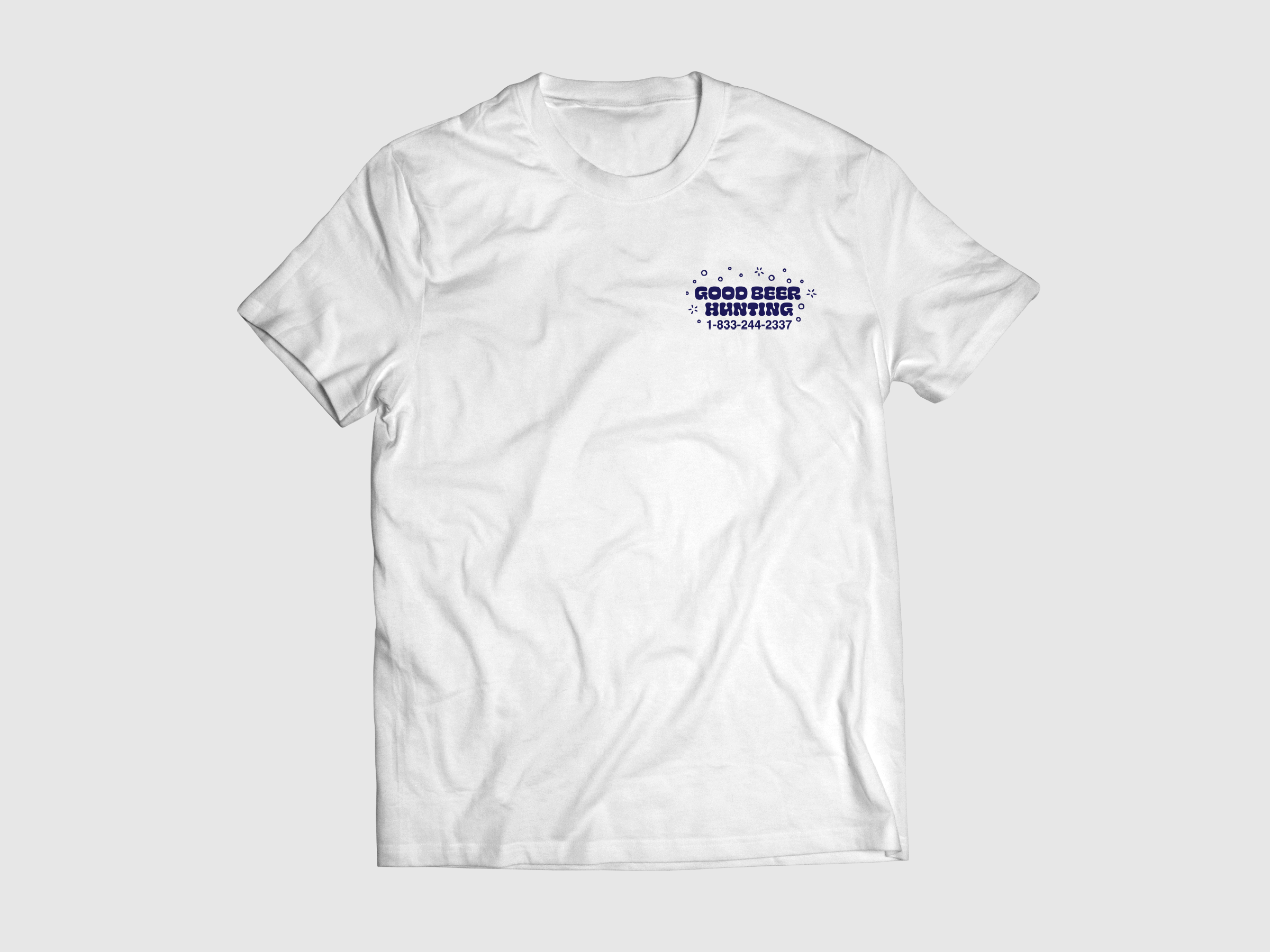Have you been staying home more? Are you excited about the future of beer delivery? Join The Fervent Few, and let's crack open some cans together and discuss a wide range of beer-related topics. Best of all, your membership supports all of the great podcasts, articles, and photography Good Beer Hunting produces every day.

Robbie Wendeborn: “Cider, like wine, varies by region and variety of fruit. Most cider in the U.S. is basically the equivalent of Franzia or André: a bunch of mixed varieties fermented in bulk and packaged generically with forced carbonation. When looking for a truly good cider, look for specific regions and apple varieties on the label.”

Jason Berg: “Cider has as much variety as beer and wine. I have offered cider to people who say that they do not like sweet drinks—most without knowing what was available, and with the assumption that all cider is finished sweet, or back-sweetened. The various methods used when making cider—full attenuation, back-sweetening, natural fermentation—have a huge impact on the final sweetness and flavor. Simple ciders with clear juice and clean American yeast can be crisp and refreshing. Cloudy, fresh-pressed juice with Saison yeast can have layers of complex yeast- and fruit-driven flavors. Adding adjuncts—like dry-hopping, or using spices, hot peppers, or other fruit—offers another avenue of possibilities. My advice is to look at the label to see how the cider was finished (dry to sweet) and carbonated (still, pétillant/fizzy, or sparkling), and to try a wide variety.”

Rob Steuart: “To me, cider has an even harder time than beer in getting the non-mainstream segment into people's hands. A lot of craft brewers around us will put on a pretty nondescript cider as an option. They are taxed less than beer and are an easy offering for any non-beer-drinking guests. They all end up tasting the same, as there are only a few local juice makers, and all the brewers are fermenting with the same yeast in stainless. I like to take people to a local cidery called Carmel Cider Company. They produce juice which they sell to many breweries, but they make their own ciders which they wood-age and naturally ferment. I'd take someone through their range, from their lighter to more complex styles. That kind of tasting shows the expression of different yeasts and wood on the cider.”
With introductions out of the way, we asked The Fervent Few: what makes cider stand out on a tap list? When do they choose it over beer or other drinks? And how can cider innovate in order to keep up with the rest of the industry?

Andrés Muñoz: “Adjuncts and barrel-aging make cider stand out. I love cider, but the flagships start to taste the same after a while. Throw something else in there, or throw the cider in a barrel, and I will always pick it. That said, I want more barrel-aged ciders to choose from.”

Bryan Arndt: “If I can find a dry cider, or one that has a unique fermentation profile, I’ll definitely seek it out. Unfortunately in my market, there really aren’t a lot of options available beyond the sticky-sweet or heavily fruited ciders. I hope that there continues to be more diversity in options—especially given the parallels to natural wine.”

Jason Berg: “I find myself ordering cider when I am looking for something easy-drinking to pair with food—either to complement something light like fish or something rich like Thanksgiving dinner. The way cider refreshes during a meal is really different than beer.
For cider on tap, I will choose one of the local cideries’ products over beer when at a bar or restaurant that pours primarily macro beer, and seems to have the cider on as a token gluten-free option. The keg may not rotate as quickly as in other places, but it still holds up and sticks out as more attractive than Pale American adjunct Lagers.
My wish for cider is for greater variety in those tap list options, beyond the standard semi-sweet, clean cider. I do not expect spontaneously fermented cider, but having a few dry, semi, and adjunct (seasonal spices, dry-hopped, fruited) ciders available would drive me to order it more often.”

Neal Buck: “I don't trust cider on a tap list. Don't get me wrong, I love cider. There's a wonderful, semi-local cidery near me that does all-natural ciders, and all but one of the products is barrel-aged. I think their elegance is matched only by good sparkling wine, like high-end cava and middle-tier Champagne. And, like those sparklers, ciders are endlessly food-friendly.
But the great majority of cider available near me is not to my taste. So, typically, I don't reach for a cider over other beverages on a tap list. The abundance of other great beverages has meant I’m not terribly interested in taking a risk on a cider.”

Nick Naretto: “I usually keep some cider in my fridge just to change up my drinking on occasion. It's also nice to have some around for family members who are gluten-free. Unfortunately I don't drink cider as often as I would like to because it is relatively hard for me to get the kind of cider that I really enjoy. I don't think that I have ever ordered a cider on tap when at a brewery or beer bar. The majority of the local breweries have a tap handle dedicated to cider, and it is typically one of the two Pennsylvania brands that I don't consider that great. My state's laws have been a bit confusing when it comes to cider, so I believe that makes it hard for great cider from other parts of the country to get here. When I do find a cider that I like, it is usually dry, has no residual sugar, and sometimes has a little funk to it. I would love to see more cider that isn't back-sweetened and is produced in a more natural way. I know it's out there, but it's seemingly hard for me to get.”

Maia Kazaks: “As a fan of mixed-ferm beers, I never enjoy the typically sweet ciders. But when the description includes phrases like "spontaneously fermented" or "wild yeast" or "funky,” I have to give it a go. Sometimes the Spanish ciders are really too astringent for my palate, though (classic Spanish-style cider is fermented with only the yeast on the apples, is not sparkling, and has no added sugars). Also, I find perry quite appealing and am willing to try apple-pear blends over straight apple. More pear, please.”

C. Sean West: “The short answer is never, but I'll usually try it if it's dry-hopped—especially if the producer names the hops that were used.”

Is there a cider you have to have every time you see it? Want to learn more about cider? Join The Fervent Few and join our conversations. You’ll have a great time, and you’ll be supporting all the great content that Good Beer Hunting produces!










